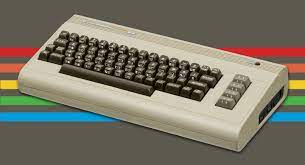
The Fascinating History of Commodore Computers
Commodore computers hold a special place in the history of computing, known for their innovation, affordability, and widespread popularity. Founded in 1954 as a typewriter company, Commodore shifted its focus to calculators and eventually entered the personal computer market in the late 1970s.
One of Commodore’s most iconic models was the Commodore PET (Personal Electronic Transactor), released in 1977. It was one of the first all-in-one personal computers on the market and helped establish Commodore as a major player in the industry.
In 1982, Commodore released the legendary Commodore 64, which became one of the best-selling home computers of all time. With its advanced graphics and sound capabilities, affordable price point, and extensive software library, the Commodore 64 captured the hearts of millions of users around the world.
Commodore continued to innovate with models like the Commodore VIC-20 and Amiga series, pushing boundaries in terms of hardware capabilities and software development. The Amiga line, in particular, was known for its advanced multimedia capabilities and gaming prowess.
Unfortunately, financial troubles eventually led to Commodore’s decline, with the company filing for bankruptcy in 1994. Despite this, Commodore computers remain beloved by retro computing enthusiasts and continue to hold a special place in computing history.
Today, websites like commodorehistory.com serve as valuable resources for preserving and sharing the rich history of Commodore computers. Through articles, photos, videos, and more, these platforms help keep alive the legacy of this pioneering company and its groundbreaking products.
As we look back on the history of Commodore computers, we are reminded of their lasting impact on technology and culture. From early personal computing to multimedia innovation, Commodore’s contributions continue to be celebrated by fans old and new alike.
Charting the Legacy of Commodore: Pioneers of the Personal Computing Revolution
- Commodore International was a US-based home computer and electronics manufacturer.
- The Commodore PET, released in 1977, was one of the earliest personal computers.
- The Commodore 64, launched in 1982, became one of the best-selling home computers of all time.
- Commodore faced financial troubles in the late 1980s and eventually went bankrupt in 1994.
- The Amiga series, starting with the Amiga 1000 in 1985, was popular for its advanced graphics and sound capabilities.
- Commodore’s legacy lives on through its iconic products that played a significant role in shaping the early personal computing industry.
Commodore International was a US-based home computer and electronics manufacturer.
Commodore International was a prominent US-based home computer and electronics manufacturer that played a significant role in shaping the early days of personal computing. Founded in the United States in 1954, Commodore quickly transitioned from producing typewriters and calculators to becoming a key player in the emerging market of home computers. The company’s innovative products, such as the iconic Commodore 64, helped democratize computing and bring technology into homes around the world. Commodore International’s legacy as a pioneer in the industry continues to be celebrated by enthusiasts and historians alike.
The Commodore PET, released in 1977, was one of the earliest personal computers.
The Commodore PET, introduced to the market in 1977, stands as a significant milestone in the history of personal computing. As one of the earliest personal computers available, the Commodore PET played a crucial role in shaping the landscape of technology and empowering individuals to explore the possibilities of computing in their homes and workplaces. Its pioneering design and functionality paved the way for future innovations in the industry, leaving a lasting impact on the evolution of personal computing.
The Commodore 64, launched in 1982, became one of the best-selling home computers of all time.
The release of the Commodore 64 in 1982 marked a significant milestone in computing history, as it quickly rose to become one of the top-selling home computers of all time. With its advanced graphics and sound capabilities, extensive software library, and affordable price point, the Commodore 64 captured the imagination of users worldwide and solidified Commodore’s reputation as a leading innovator in the industry. Its enduring popularity among retro computing enthusiasts serves as a testament to its lasting impact on the world of technology.
Commodore faced financial troubles in the late 1980s and eventually went bankrupt in 1994.
During the late 1980s, Commodore encountered significant financial challenges that ultimately led to its bankruptcy in 1994. Despite its earlier successes and groundbreaking products, such as the Commodore 64 and Amiga series, the company struggled to adapt to changing market conditions and faced fierce competition from other computer manufacturers. The bankruptcy marked the end of an era for Commodore, but its legacy lives on through the enduring impact of its innovative computers on the history of technology.
The Amiga series, starting with the Amiga 1000 in 1985, was popular for its advanced graphics and sound capabilities.
The Amiga series, debuting with the Amiga 1000 in 1985, quickly gained popularity for its cutting-edge graphics and sound capabilities. Setting a new standard in multimedia computing, the Amiga computers revolutionized the industry with their advanced hardware and software capabilities. Users were amazed by the stunning graphics and immersive sound experiences that the Amiga series offered, making it a favorite among creative professionals, gamers, and technology enthusiasts alike.
Commodore’s legacy lives on through its iconic products that played a significant role in shaping the early personal computing industry.
Commodore’s legacy endures through its iconic products that played a pivotal role in shaping the early personal computing industry. The innovative designs and affordable pricing of Commodore computers, such as the Commodore PET and Commodore 64, made computing more accessible to a broader audience and helped lay the foundation for the technology-driven world we live in today. The impact of Commodore’s contributions continues to be felt, with its pioneering spirit resonating through the evolution of modern computing devices.
